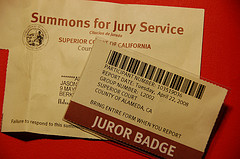 A survey of jurors from 15 trials
has found that jurors generally understand instructions not to use the
Internet or social media to research or communicate about trials, but
also that many jurors wish they could use technology to do some sort of
research about
A survey of jurors from 15 trials
has found that jurors generally understand instructions not to use the
Internet or social media to research or communicate about trials, but
also that many jurors wish they could use technology to do some sort of
research aboutCopyright 2007-25 Digital Media Law Project and respective authors. Except where otherwise noted,
content on this site is licensed under a Creative Commons Attribution-Noncommercial-ShareAlike 3.0 License: Details.
Use of this site is pursuant to our Terms of Use and Privacy Notice.
content on this site is licensed under a Creative Commons Attribution-Noncommercial-ShareAlike 3.0 License: Details.
Use of this site is pursuant to our Terms of Use and Privacy Notice.


 A federal judge's ruling that a blogger was not covered by Oregon's reporters' shield law
A federal judge's ruling that a blogger was not covered by Oregon's reporters' shield law  Today, the Digital Media Law
Project is launching a new guide to photography and filming at this year’s presidential
election,
Today, the Digital Media Law
Project is launching a new guide to photography and filming at this year’s presidential
election,  On October 16, the Union des Étudiants Juifs Français (Union of French Jewish Students, UEJF) asked Twitter to remove several racist and anti-Semitic tweets. Using the hashtags #unbonjuif and #unbonmusulman ("agoodjew" and "agoodmuslim," respectively), some Twitter users were posting derogatory comments about Jews and Muslims, some allegedly meant to be 'jokes.'
On October 16, the Union des Étudiants Juifs Français (Union of French Jewish Students, UEJF) asked Twitter to remove several racist and anti-Semitic tweets. Using the hashtags #unbonjuif and #unbonmusulman ("agoodjew" and "agoodmuslim," respectively), some Twitter users were posting derogatory comments about Jews and Muslims, some allegedly meant to be 'jokes.'
 When using
When using 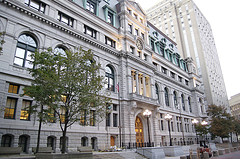 The DMLP is pleased to announce that the Massachusetts Appeals Court has ruled in favor of the result we advocated in an
The DMLP is pleased to announce that the Massachusetts Appeals Court has ruled in favor of the result we advocated in an 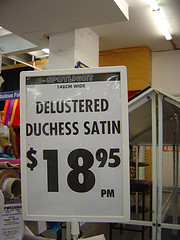 On September 14, French weekly gossip magazine Closer published several pictures of the Duke and Duchess of Cambridge taken without their consent while they were spending a weekend at a private villa in the South of France. Some of the pictures showed the Duchess wearing only the bottom of a bikini suit.
On September 14, French weekly gossip magazine Closer published several pictures of the Duke and Duchess of Cambridge taken without their consent while they were spending a weekend at a private villa in the South of France. Some of the pictures showed the Duchess wearing only the bottom of a bikini suit. A doctor in New York and a dentist in Oregon have both found out that
it may not be easy to sue for libel over online reviews of their
services, after their separate lawsuits were both dismissed. And it turns out that most of the dentists and doctors who have sued over online reviews have reached similar results.
A doctor in New York and a dentist in Oregon have both found out that
it may not be easy to sue for libel over online reviews of their
services, after their separate lawsuits were both dismissed. And it turns out that most of the dentists and doctors who have sued over online reviews have reached similar results.
 Being a journalist in Italy may have occupational hazards, but having to go to prison in your own country because of an article you wrote should not be one of them. However, Italy, a founding Member of both the Council of Europe and the European Union, still punishes defamation through the medium of the press (diffamazione a mezzo stampa) by a prison term.
Being a journalist in Italy may have occupational hazards, but having to go to prison in your own country because of an article you wrote should not be one of them. However, Italy, a founding Member of both the Council of Europe and the European Union, still punishes defamation through the medium of the press (diffamazione a mezzo stampa) by a prison term.
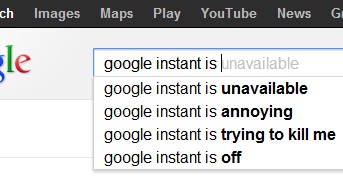 Google searches employ two features:
Google searches employ two features:  Cell phones allow us not only to communicate with one another, but also to take and store pictures, “check in” from a location, balance our checking account, and even update our blogs. When the content of a cell phone may help the police to solve a crime, the legality of the search of both the phone and its content is of crucial importance. However, the law of warrantless searches of cell phones is not yet settled.
Cell phones allow us not only to communicate with one another, but also to take and store pictures, “check in” from a location, balance our checking account, and even update our blogs. When the content of a cell phone may help the police to solve a crime, the legality of the search of both the phone and its content is of crucial importance. However, the law of warrantless searches of cell phones is not yet settled.
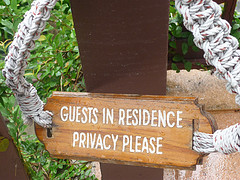 Today's post is a continuation of my analysis of the laws implicated by the recording of Mitt Romney's remarks at a
fundraiser held at a private home in Boca Raton, Florida, on May 17,
2012.
Today's post is a continuation of my analysis of the laws implicated by the recording of Mitt Romney's remarks at a
fundraiser held at a private home in Boca Raton, Florida, on May 17,
2012. 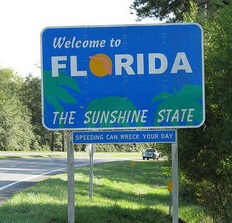 As
is now commonly known, on May 17, 2012, presidential candidate Mitt Romney made
a series of very candid comments at a private fundraiser held in the Boca Raton
home of private equity manager Marc Leder.
As
is now commonly known, on May 17, 2012, presidential candidate Mitt Romney made
a series of very candid comments at a private fundraiser held in the Boca Raton
home of private equity manager Marc Leder. It is hard to look at the international protests surrounding the Innocence of Muslims video and the contemporaneous (
It is hard to look at the international protests surrounding the Innocence of Muslims video and the contemporaneous ( I am very pleased to be able to share the news that, after more than two and a half years, the nonprofit
I am very pleased to be able to share the news that, after more than two and a half years, the nonprofit  You might recall the Los Angeles Police Department's infamous
You might recall the Los Angeles Police Department's infamous  The federal courts have revised the jury instructions
The federal courts have revised the jury instructions 

